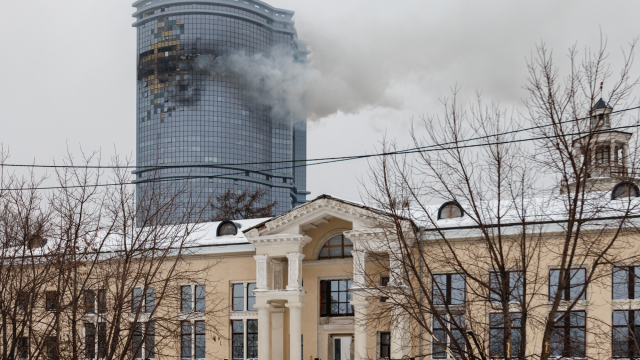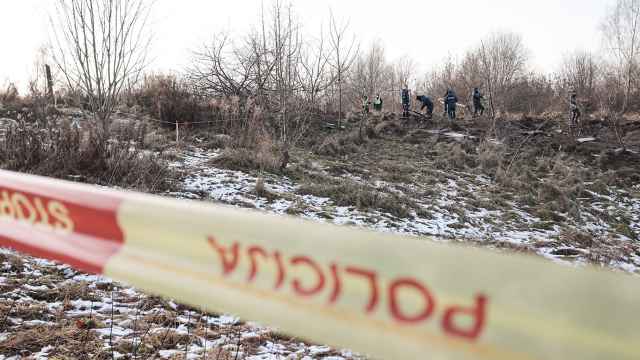A new Kremlin decree a decade in the making bans foreigners from buying land near federal borders, but analysts said the move would not harm foreign investment into the country.
The decree, signed by President Dmitry Medvedev on Sunday and posted on the Kremlin's web site, lists 380 border areas in 48 regions where foreign individuals and companies are not allowed to buy land.
The ban was included in the Land Code, which went into effect in 2001, but the code did not specify the territories, and it took numerous state agencies involved in the process 10 years to agree on the list, a Kremlin spokeswoman said by telephone.
"The protection of the frontier is in Russia's national interest," the spokeswoman said on customary condition of anonymity.
The list incorporates mostly rural areas and small cities with the notable exception of the cities of Kaliningrad, Magadan, Murmansk, Pskov and Salekhard, the southern sea resort of Azov, and Kronstadt, a port town that is part of St. Petersburg.
All eight federal districts are covered. Large swathes of most North Caucasus republics and the other regions in southern Russia made the list, along with parts of the Altai, Astrakhan, Primorye and Sakhalin regions and the republic of Karelia near the Finnish border.
The list also includes some territories with only sea borders, such as Dagestan's Babayurt district and the republic's capital, Makhachkala, both of which border Kazakhstan through the Caspian Sea.
The ban appears aimed at preventing possible territorial disputes between Russia and its neighbors, such as the Kuril Islands with Japan, Abkhazia and South Ossetia with Georgia, and even Alaska, said Nikolai Kazansky, director for investments and consulting at the St. Petersburg office of Colliers International.
The Federal Security Service probably played a key role in the idea because its border guards "may have had problems protecting the border," said Nikolai Petrov, an analyst with the Carnegie Moscow Center.
In any case, foreign investors prefer regions "with developed infrastructure," which most border areas are not, Kazansky said.
The sentiment was shared by Maxim Klyagin, an analyst with the investment holding Finam, who said "the most attractive real estate is often in big cities, while the most attractive agricultural land plots are in central Russia."
Moreover, the ban is not relevant for businesses because all big foreign companies have Russian subsidiaries, which are allowed to buy land near federal borders, said Yevgeny Butorin, a senior analyst with the St. Petersburg office of Astera Group.
A Message from The Moscow Times:
Dear readers,
We are facing unprecedented challenges. Russia's Prosecutor General's Office has designated The Moscow Times as an "undesirable" organization, criminalizing our work and putting our staff at risk of prosecution. This follows our earlier unjust labeling as a "foreign agent."
These actions are direct attempts to silence independent journalism in Russia. The authorities claim our work "discredits the decisions of the Russian leadership." We see things differently: we strive to provide accurate, unbiased reporting on Russia.
We, the journalists of The Moscow Times, refuse to be silenced. But to continue our work, we need your help.
Your support, no matter how small, makes a world of difference. If you can, please support us monthly starting from just $2. It's quick to set up, and every contribution makes a significant impact.
By supporting The Moscow Times, you're defending open, independent journalism in the face of repression. Thank you for standing with us.
Remind me later.





